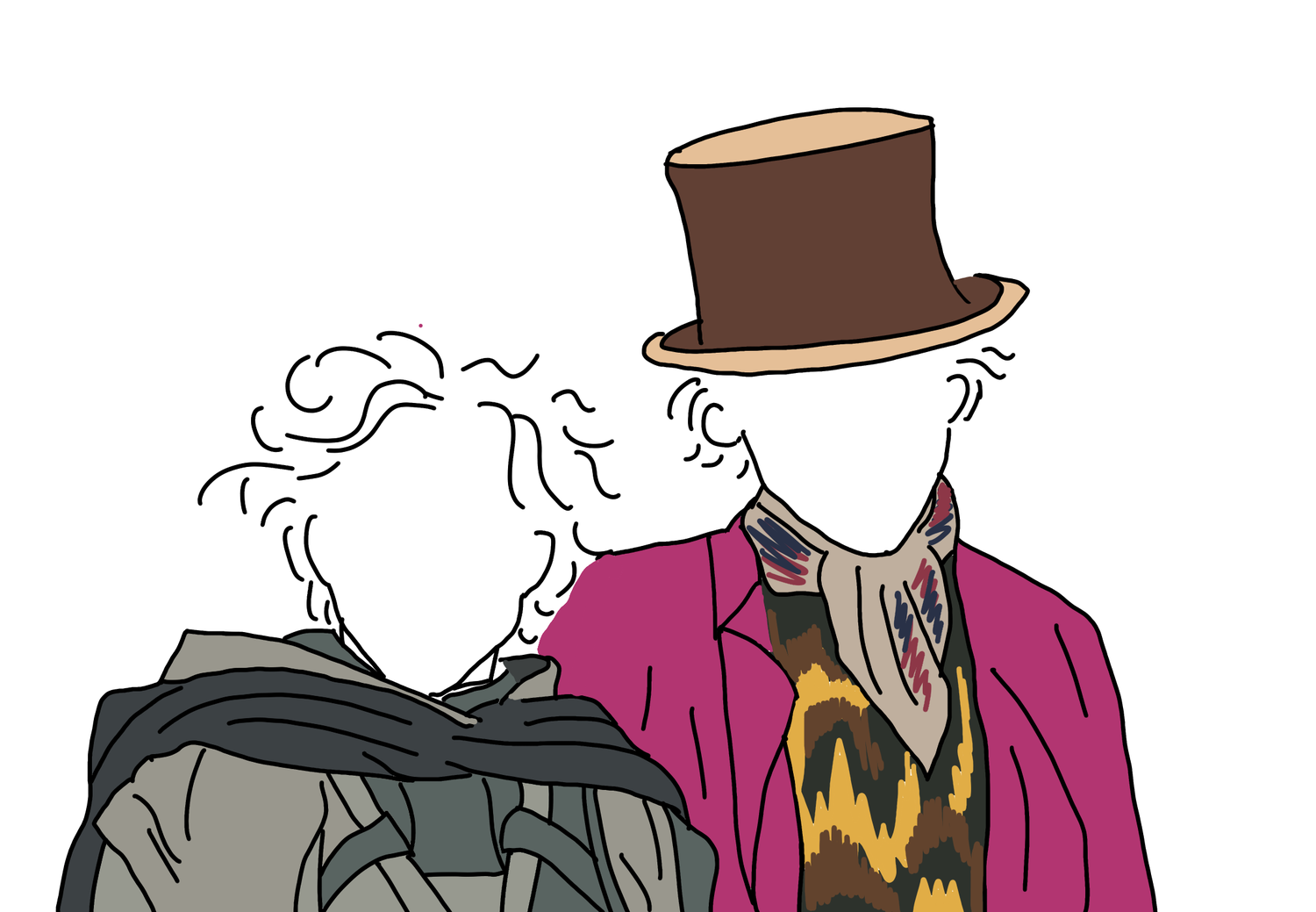
News
Harvard Grad Union Agrees To Bargain Without Ground Rules

News
Harvard Chabad Petitions to Change City Zoning Laws

News
Kestenbaum Files Opposition to Harvard’s Request for Documents

News
Harvard Agrees to a 1-Year $6 Million PILOT Agreement With the City of Cambridge

News
HUA Election Will Feature No Referenda or Survey Questions
What the Hell Happened: Wonkas & Whimsy Abound in Timothée Chalamet Look-Alike Contest

On Oct. 27, a Timothée Chalamet look-alike contest commandeered lower Manhattan. The surprise smash hit, which unexpectedly featured the real Timothée Chalamet, was organized by Anthony Po, a YouTube content creator who had hosted another look-alike competition only the day before. Though the previous day’s contest had a modest showing of about 50 people, Po estimated that the Chalamet event attracted closer to 10,000 attendees.
He had publicized the competition in the preceding weeks by putting up flyers all over New York City. Po, who deliberately omitted his name on the flyers, offered a mere $50 reward for the most convincing Chalamet look-alike. Many of the contestants went above and beyond for this directive, enhancing their natural Chalamet-ness with costumes of Willy Wonka and Paul Atreides — film characters who Chalamet has played.
At one point, the real Timothée Chalamet even made an appearance. He declined to enter the contest, which he would have undoubtedly swept, but he did stay long enough to take a few pictures with fans.
Eventually, a winner was declared: Miles Mitchell, a Staten Island native dressed in a Willy Wonka costume. He left with the trophy and a briefcase, which he had earlier filled with candy to toss to his adoring fans.
This was the key to Mitchell’s success. By fully leaning into Wonka’s character, Mitchell embodied the event’s farcical tone.
Such lighthearted sincerity aligned with Po’s goal. In an interview with the Hollywood Reporter, Po stated that his goal for the Chalamet competition was to create a “fun, wholesome thing for the city.” Though the event was somewhat hectic, he believed anything more formal would have killed the mood and been a less meaningful memory for the attendees.
As such, the secret ingredient to the competition’s success might have been its invigorating sense of whimsy — which gave people permission to play in a world hellbent on efficiency.
Hustle culture may be to blame for the current zeitgeist’s obsession with efficiency. This expectation that one must constantly work to achieve the next goal first rose to prominence in the early 2000s. Tech giants like Facebook and Google expounded full-throttle philosophies like “work is life,” “efficiency is god,” and “personal lives are distractions.”
However, the pandemic shifted public expectations. Once faced with quarantine-induced isolation, many people realized that work actually isn’t enough to sustain your well-being. Efficiency isn’t the end-all, be-all. Meaning and community is.
This paradigm shift underlaid the Timothée Chalament look-alike contest’s appeal. For all intents and purposes, the competition was about as inefficient as a public event can be. One contestant spent $400, eight times the cash prize, just to get there. Its one apparent goal of finding the civilian that best resembled Timothée Chalamet seemed to be achieved haphazardly and even in defiance of reason.
Yet, the attendees relished in the chaos, the stupidity, and the sheer fun of gathering with thousands of people for a purely fanciful reason. The next legendary offline event, whatever it may be, will probably harness this same indefinable magic.
—Staff writer Giselle P. Acosta can be reached at giselle.acosta@thecrimson.com.
Want to keep up with breaking news? Subscribe to our email newsletter.
